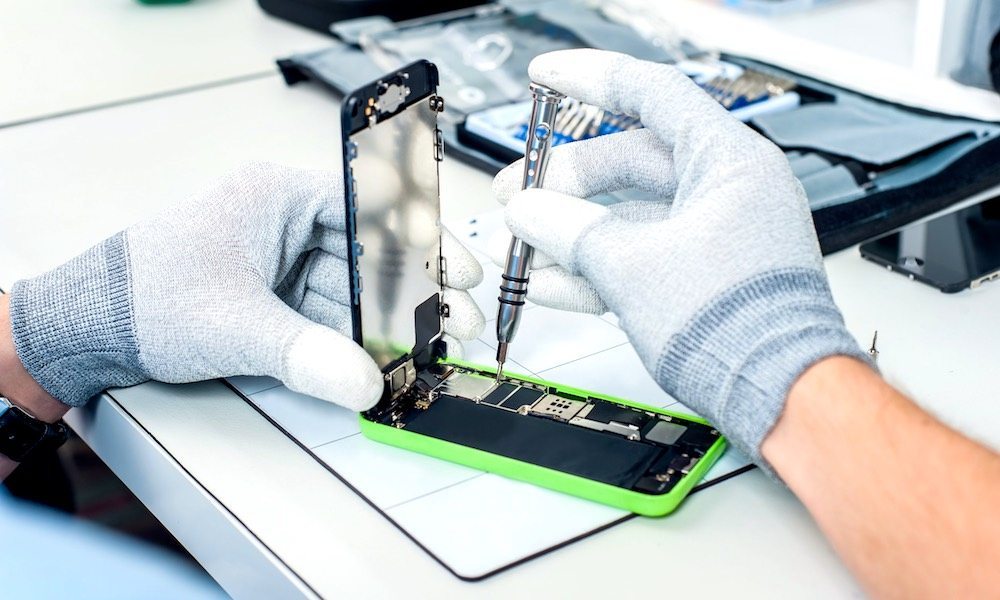‘Right to Repair’ Legislation Could Force Apple to Make Parts and Technical Information Available to the Public
 Credit: Vlad Teodor / Shutterstock
Credit: Vlad Teodor / ShutterstockToggle Dark Mode
Legislators in five states have introduced bills that would entrench third parties’ and consumers’ “right to repair” electronics, according to a new report.
The legislation would force manufacturers to sell first-party replacement parts to independent repair shops and consumers, as well as provide diagnostic and service manuals to the public, according to Motherboard. The bill is being introduced in Kansas, Nebraska, Minnesota, Massachusetts and New York.
These bills, and similar past legislation, primarily target aftermarket monopolies that are often dominated by electronics manufacturers themselves — the so-called “authorized repair” business model. Since Apple has never authorized any independent entity to repair broken iPhones, third-party companies often have to scrounge for spare parts from gray markets, or salvage them from recycled devices, Engadget reported.
That means that independent repair shops or consumers conducting self-repair exist in a sort of legal gray area. In the past, for example, the Department of Homeland Security has raided repair shops for unwittingly selling counterfeit parts and components.
While Cupertino hasn’t authorized third-party repair companies for iPhones, it has done so with Macs, according to AppleInsider. Apple-authorized Mac repair stores have the ability to order parts directly from the company, and have access to manuals and support not normally available to the public. These authorized shops can also be reimbursed for warranty and service agreement repairs.
By making spare parts and technical information available, these bills would make it easier for consumers and third parties to conduct self-repair — and not just for iPhones, either. Any matter of electronic device or appliance, from dishwashers to IoT devices, have had their own issues with right-to-repair laws, Motherboard reported.
The bills are partly inspired by a Massachusetts legislation called the Motor Vehicle Owners’ Right to Repair Act, which was passed in 2012. Like the electronics bill, the Right to Repair Act provided owners of cars with support from automakers. In the wake of that law, automakers started treating it as national legislation to avoid dealing with 50 different and varied state laws.
It’s theorized that if just one of the five electronics right-to-repair bills passes, it’ll similarly open up aftermarket repairs for the entire country.






